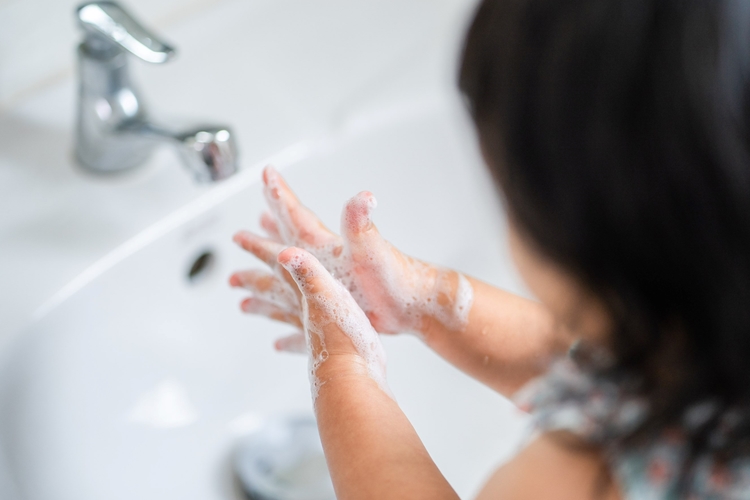If you have young children or work in a school, it can feel like a never-ending sea of bugs and illnesses during the winter months.
Read the following advice from East Riding of Yorkshire Council Health Protection Team, as well as some helpful steps you can take to prevent spreading infections at home or further in the community, especially anyone at a higher risk or more elderly.
It's a good idea to be aware of the early symptoms of common seasonal diseases and infections, particularly when you have young children or babies so you can act fast.
Always trust your gut feeling and if something doesn't seem right, please speak to a medical professional or seek advice from your GP, pharmacist, health visitor or NHS 111.
Read more about local NHS provision on Let's get better - Let's Get Better (letsgetbetter.co.uk)
As we head into the new year and back to school, nursery and work after family gatherings it's quite likely that some people will become unwell, so beyond the usual cold and flu bugs, here are some of the issues that health partners are currently seeing in the community...
Common seasonal illnesses
What you should know and what you can do to prevent or treat these illnesses
There are some things you can do to lower the chances of your child getting ill or spreading viruses, such as:
- washing your hands and your child's hands with soap and water often
- washing or wiping down toys and cleaning surfaces with disinfectant regularly
- using disposable tissues and throwing them away as soon as you've used them (ideally in a lidded bin)
- keeping newborn babies away from anyone with a cold or the flu - especially if they're under two months old or were born prematurely
- not relying on hand gels as they don't kill norovirus.
If anyone has a sickness bug in your home or setting:
- wash any clothing or bedding that has poo or vomit separately on a hot wash
- clean toilet seats, flush handles, taps, surfaces and door handles every day
- don't share towels, flannels or cutlery
- avoid swimming pools until two weeks after symptoms stop.
Diarrhoea and vomiting
You can usually treat yourself or your child at home. The most important thing is to have lots of fluids to avoid dehydration.
- stay at home until you've not been sick or had diarrhoea for at least two days
- if you have a high temperature or do not feel well enough to do your normal activities, try to stay at home and avoid contact with other people until you feel better
- do not visit people in hospitals and care homes to avoid passing on the infection in these settings
- do not return to work or school, until 48 hours after symptoms have stopped
- get plenty of rest
- drink lots of fluids, such as water or squash - take small sips if you feel sick
- carry on breast feeding or bottle feeding your baby - if they are sick, try giving small feeds more often than usual. Make baby formula at its usual strength
- give babies on formula or solid foods small sips of water between feeds
- eat when you feel able to - you do not need to eat or avoid any specific foods
- take paracetamol if you are in discomfort - check the leaflet before giving it to your child
- do not give aspirin to children under 16
- avoid fruit juice or fizzy drinks - they can make diarrhoea worse
If you are struggling with feeding your baby during illness and would like some support the East Riding integrated infant feeding service can help. Contact the service's 'single point of contact' (SPoC) on 01482 689689 or email This email address is being protected from spambots. You need JavaScript enabled to view it. and a member of the friendly and professional team will be able to help.
RSV (respiratory syncytial virus)
You may not have heard of RSV (respiratory syncytial virus), but it is actually a very common viral infection which spreads easily in coughs and sneezes. Most children will have it by the time they are two years old.
In older children and adults, RSV may just cause a cough or cold, but in young children it can develop into bronchiolitis which is why it's important to be aware of the symptoms.
Early symptoms of bronchiolitis are similar to a cold:
- sneezing, a runny or blocked nose
- a cough
- a slightly high temperature of 38C.
A child with bronchiolitis may then get other symptoms, such as:
- breathing more quickly
- finding it difficult to feed or eat
- noisy breathing (wheezing)
- becoming irritable.
Symptoms are usually worst between day three and five, and the cough usually gets better in three weeks.
As a parent, you may know if your child seems seriously unwell and should trust your own judgement.
Call 999 or go to A&E straight away if:
- your child is having difficulty breathing - listen for grunting noises or their tummy sucking under their ribs
- there are pauses when your child breathes
- your child's skin, tongue or lips are blue
- your child is floppy and will not wake up or stay awake.
What can parents/carers do to help?
There's no specific treatment for bronchiolitis. It usually gets better on its own and you can look after your child at home. But it can be serious in some children, who may need to be treated in hospital.
- give children's paracetamol (such as Calpol) to babies and children over two months old or ibuprofen to babies and children over three months old
- do not give aspirin to a child under 16
- keep your child upright as much as possible when they're awake - this will help them breathe more easily
- encourage your child to drink lots of fluids - try smaller feeds more often in babies, and give older children extra water or diluted fruit juice.
Scarlet fever
Scarlet fever is a contagious infection that mostly affects young children. It can be easily treated with antibiotics from your GP to help you get better quicker as well as reduce the chance of serious illness, such as pneumonia and the chance of spreading the infection to someone else.
The first signs of scarlet fever include:
- flu-like symptoms, including a high temperature, a sore throat and swollen neck glands
- a rash which will appear 12 to 48 hours later that looks like small, raised bumps which normally starts on the chest and tummy and then spreads. The rash makes the skin feel rough, like sandpaper - on white skin the rash looks pink or red, and on brown and black skin it might be harder to see a change in colour, but you can still feel the rash and see the raised bumps
- a white coating on the tongue, which peels, leaving the tongue red, swollen and covered in little bumps.
What can parents/carers do to help?
- Be aware that you can spread scarlet fever to other people until 24 hours after you take your first dose of antibiotics and if you don't take them, you can spread the infection for two to three weeks after your symptoms start.
- stay away from nursery, school or work for 24 hours after the first dose of antibiotics
- do not share cutlery, cups, towels, clothes, bedding or baths with anyone who has symptoms of scarlet fever
- help reduce the symptoms by drinking cool fluids and eating soft foods if you have a sore throat
- give painkillers like paracetamol to bring down a high temperature (do not give aspirin to children under 16)
- use calamine lotion or antihistamine tablets to ease itching
- it is possible to get scarlet fever and chickenpox at the same time - see a GP if you suspect this to be the case.
Contact NHS 111 or your GP surgery if you think your child is getting worse, for instance if they:
- are feeding or eating less than normal
- are dehydrated
- have a high temperature that won't go down
- are very hot and sweaty or seem more tired or irritable than normal.
Read more on the NHS website: https://www.nhs.uk/conditions/scarlet-fever/
Measles
Measles is a highly infectious disease that can lead to serious problems in some people such as pneumonia, meningitis, and on rare occasions, long-term disability or death.
The first signs of measles include:
- a high fever
- sore red watery eyes
- a blotchy red-brown rash which looks brown or red on white skin, it may be harder to see on brown and black skin - for photos see the NHS website: Measles - NHS (www.nhs.uk)
- sneezing
- a cough.
What can parents/carers do to help?
Measles is not a winter illness particularly but there have been recent isolated outbreaks across the country so it's worth being aware of the symptoms. It is particularly easy to catch in environments when in close contact with others.
You are advised to:
- stay away from school/work or nursery for at least the first four days after symptoms start
- rest and drink plenty fluids, such as water, to avoid dehydration
- take paracetamol or ibuprofen to relieve a high temperature - but do not give aspirin to children under 16 years
- Anyone with symptoms of measles is advised to stay at home and phone their GP or NHS 111 for advice, rather than visiting the surgery or A&E, to prevent the illness spreading further
- please contact a health professional such a GP if you've been in close contact with someone who has measles and you're pregnant.
Having two doses of the measles, mumps and rubella (MMR) vaccine is the best way to prevent measles. Check your child's red book or with your GP to make sure everyone in your family, including any adults or young people have had both doses for the best protection - it is not too late to get vaccinated and it is free on the NHS at any age.
Children are normally offered the first dose of the MMR vaccine when aged one year and the second dose at the age of three years and four months.
Read more about vaccination on the NHS website: MMR (measles, mumps and rubella) vaccine - NHS (www.nhs.uk)
Hand, foot and mouth disease
Another condition to be aware of is hand, foot and mouth disease, which you can read about on the NHS website: Hand, foot and mouth disease - NHS (www.nhs.uk)
Symptoms include a rash of spots and mouth ulcers. It usually gets better on its own in seven to 10 days, but it is easily passed on to other people. It spreads in coughs, sneezes, poo and the fluid in the spot blisters.
This condition tends to be more common during the summer and early autumn months but there have been cases popping up across the region recently, particularly in early years settings but it can affect adults.
If you are concerned about a child or yourself and need medical help please read our advice piece about the best place to go on our website: Make sure you 'choose well' this winter when accessing healthcare (eastriding.gov.uk)




